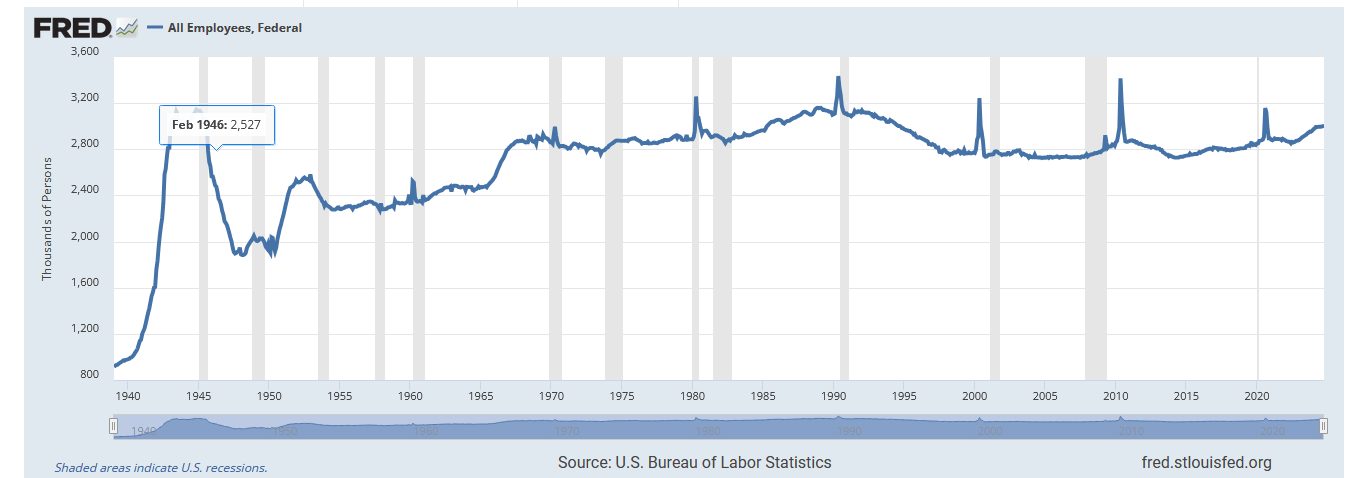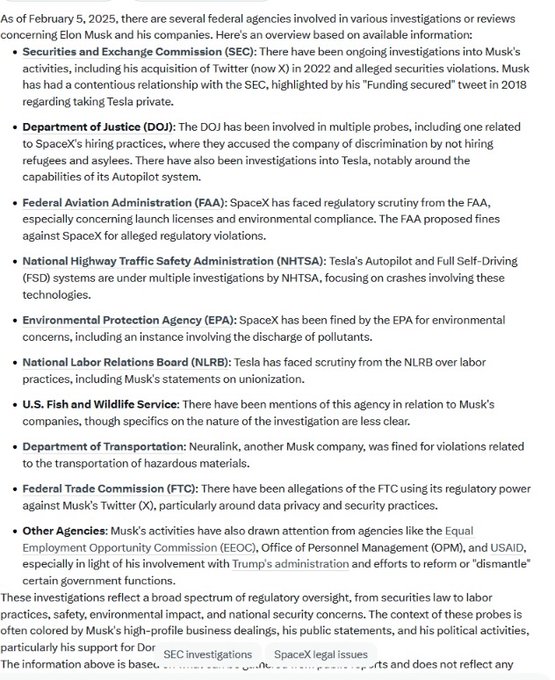To understand DOGE it’s best to start with Reagan. Reagan reduced regulation massively, and where he couldn’t get rid of laws he and his successors just stopped regularly enforcing them. This took steam over time, so for example there was some anti-trust action up until George W. Bush. In fact without anti-trust actions there would be no Microsoft as we understand it. IBM had MS write the operating system for the IBM PC because they had been hit by anti-trust action repeatedly and wanted to avoid it. It’s not like IBM couldn’t write its own operating system
Gates himself engaged in repeated violations of anti-trust law, and most of it was allowed to slide, but eventually the Feds went after him. The case was going badly for him, but George Bush Jr. ordered it shut down.
Generally regulations do impose a cost, and in return the public receives a benefit. There’s also some benefit to corporations, because regulations increase trust. But as time goes by people assume companies are trustworthy, and regulations start seeming like pure cost.
Cut regulations, and you increase profits, it’s often that simple. The decay of trust which loses money takes decades and the profits are now.
Likewise when you cut government workers, the work usually still needs to be done. Contractors take over and they charge more, and usually do a shittier job, if not immediately, then after a while. Here in Toronto where I live, half the garbage collection was given to private enterprise. At first they were cheaper, but within ten years, why, they were more expensive than union work, though somehow the actual workers were getting paid less. Strange that.
Nor is the Federal bureaucracy in any significant way bloated:

The chart above is in absolute numbers, which means the size of the federal workforce, relative to population, has been declining. You wonder why you’re getting bad service? That, plus contractors, is why.
All of this, of course, doesn’t include the fact that Musk was under investigation by multiple agencies. This Grok (his own AI) generated list from February, amuses:

Before the election Musk said:
Billionaire Tesla and X boss Elon Musk suggested Monday that he will end up behind bars if Vice President Kamala Harris beats former President Donald Trump in next month’s election.
“If he loses, I’m f—ed,” Musk told Tucker Carlson of the Republican nominee in an interview broadcast on X.
“How long do you think my prison sentence is going to be?” the world’s richest man quipped. “Will I see my children? I don’t know.”
Perhaps more important is the larger picture of financial enforcement. Musk wants X to be an “everything app”, which includes making it a payment system and, in effect, a bank. Like Crypto-entrepreneurs and many others he wants the profits of a financial corporation without the oversight, including without the FDIC deposit insurance.
Tech bros have spent over 30 years staring at financial elites and seeing how rich they are, salivating for some of that easy money. Destruction of and intimidation of regulatory agencies is what is required to make it truly happen. Remember that Musk and other politically active tech-bros like Peter Thiel made their first bundle from PayPal.
Finance firms have been the most politically powerful special interest group since at least the 90s, but they are being replaced by politically connected tech firms: an industry they helped birth, and billionaires who would not exist without tax and financial law changes spear-headed by Wall Street.
DOGE’s purpose isn’t to cut costs. It’s to open up new profit profit opportunities, attack resisting parts of the deep state and to remove legal risk from breaking the law. That’s all. It’s why the second part of the government shut down entirely was the Consumer Financial Protection Bureau.
The idea, as always, is to end the reforms which ended with FDR’s New Deal and go back to the 1890s. Notice how obsessed Trump is with ending income tax and going to tariffs: that’s a 19th century political economy setup.
Welcome to the new Gilded Age, with even richer oligarchs.